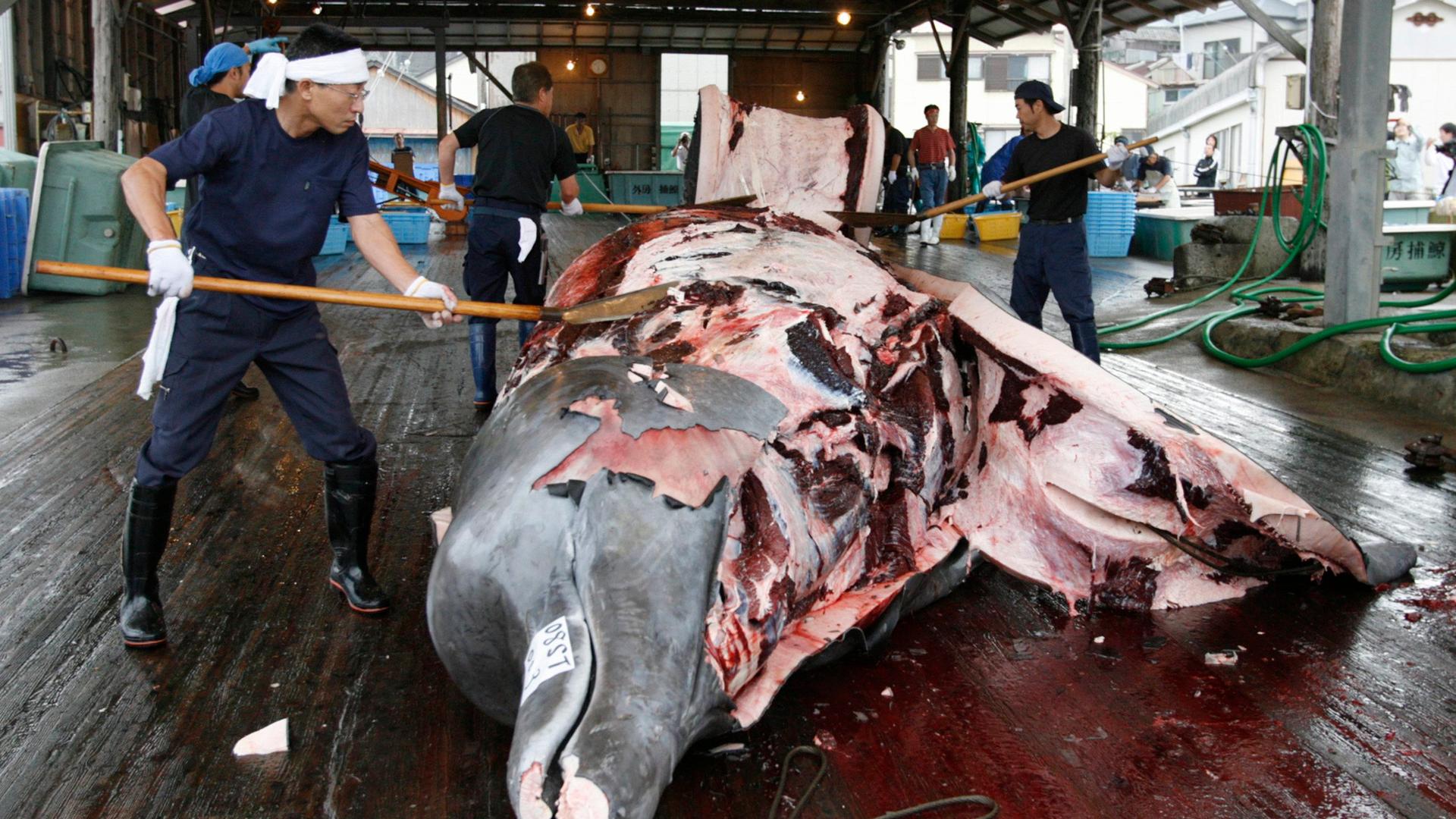Japan told it can’t hunt whales near Antarctica — because it’s not scientific
Workers butcher a Baird’s beaked whale at Wada port in Minamiboso, southeast of Tokyo. Monday’s order by a UN court calls on Japan to halt hunting in the waters near Antarctica.
Whale activists got some good news today. Japan's whale hunting near Antarctica should stop immediately.
The UN International Court of Justice (ICJ) ruled Monday that Japan's whale hunting must cease, because it's not for scientific research purposes. That had been Japan's argument, they they were doing it for science. The waters around Antarctica were declared a whale sanctuary in 1994.
The court sided with Australia, which brought the case against Japan in 2010.
"It's a great outcome," said Kevin Rudd, the forner prime minister of Australia. Rudd was prime minister when Australia brought the case against Japan's whaling program.
"When you know that they're endangered around the world due to excessive whaling activities, the least we can do is take care of other members of the created order who require us to act responsively in relation to them," he added.
Japan's chief negotiator, Koji Tsuruoka, said Japan would abide by the order, though Tsuruoka expressed "deeep disappointment with the decision.
Rudd said bringing this case was a difficult decision, because Japan is the second largest tradition partner for Australia. "There was a lot of pressure at the time not to disturb the diplomatic relations between the two countries." Rudd said. "But we believed this was important question of principal."
Virtually all of the world's countries have agreed to a ban on commercial whaling, but a few, primarily Japan, Norway and Iceland, have resisted restrictions.
Whale activists got some good news today. Japan's whale hunting near Antarctica should stop immediately.
The UN International Court of Justice (ICJ) ruled Monday that Japan's whale hunting must cease, because it's not for scientific research purposes. That had been Japan's argument, they they were doing it for science. The waters around Antarctica were declared a whale sanctuary in 1994.
The court sided with Australia, which brought the case against Japan in 2010.
"It's a great outcome," said Kevin Rudd, the forner prime minister of Australia. Rudd was prime minister when Australia brought the case against Japan's whaling program.
"When you know that they're endangered around the world due to excessive whaling activities, the least we can do is take care of other members of the created order who require us to act responsively in relation to them," he added.
Japan's chief negotiator, Koji Tsuruoka, said Japan would abide by the order, though Tsuruoka expressed "deeep disappointment with the decision.
Rudd said bringing this case was a difficult decision, because Japan is the second largest tradition partner for Australia. "There was a lot of pressure at the time not to disturb the diplomatic relations between the two countries." Rudd said. "But we believed this was important question of principal."
Virtually all of the world's countries have agreed to a ban on commercial whaling, but a few, primarily Japan, Norway and Iceland, have resisted restrictions.
Our coverage reaches millions each week, but only a small fraction of listeners contribute to sustain our program. We still need 224 more people to donate $100 or $10/monthly to unlock our $67,000 match. Will you help us get there today?
